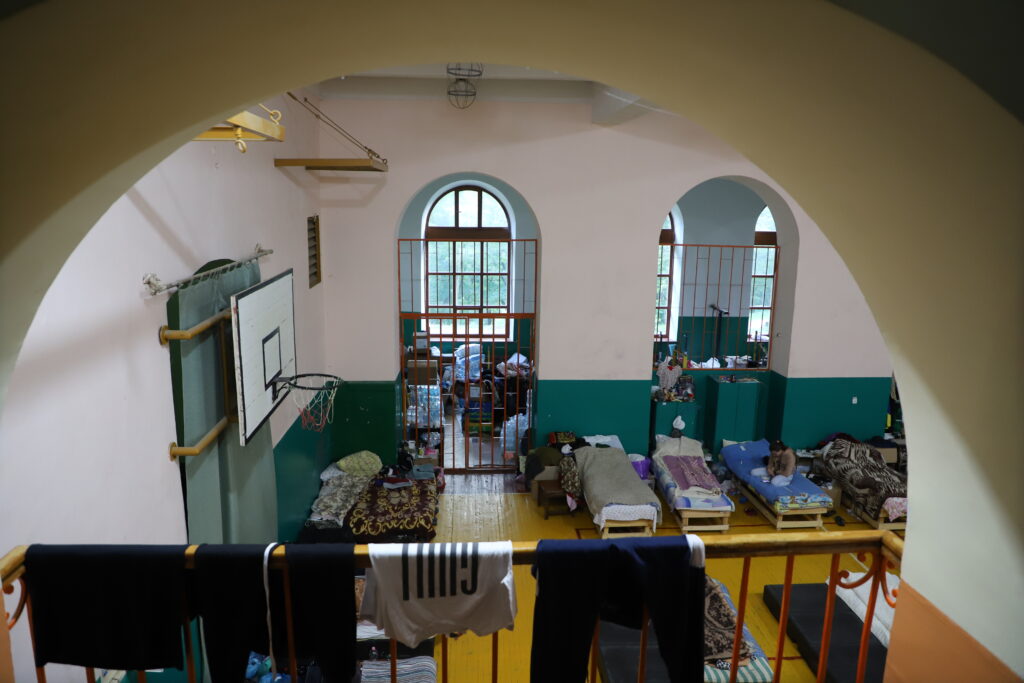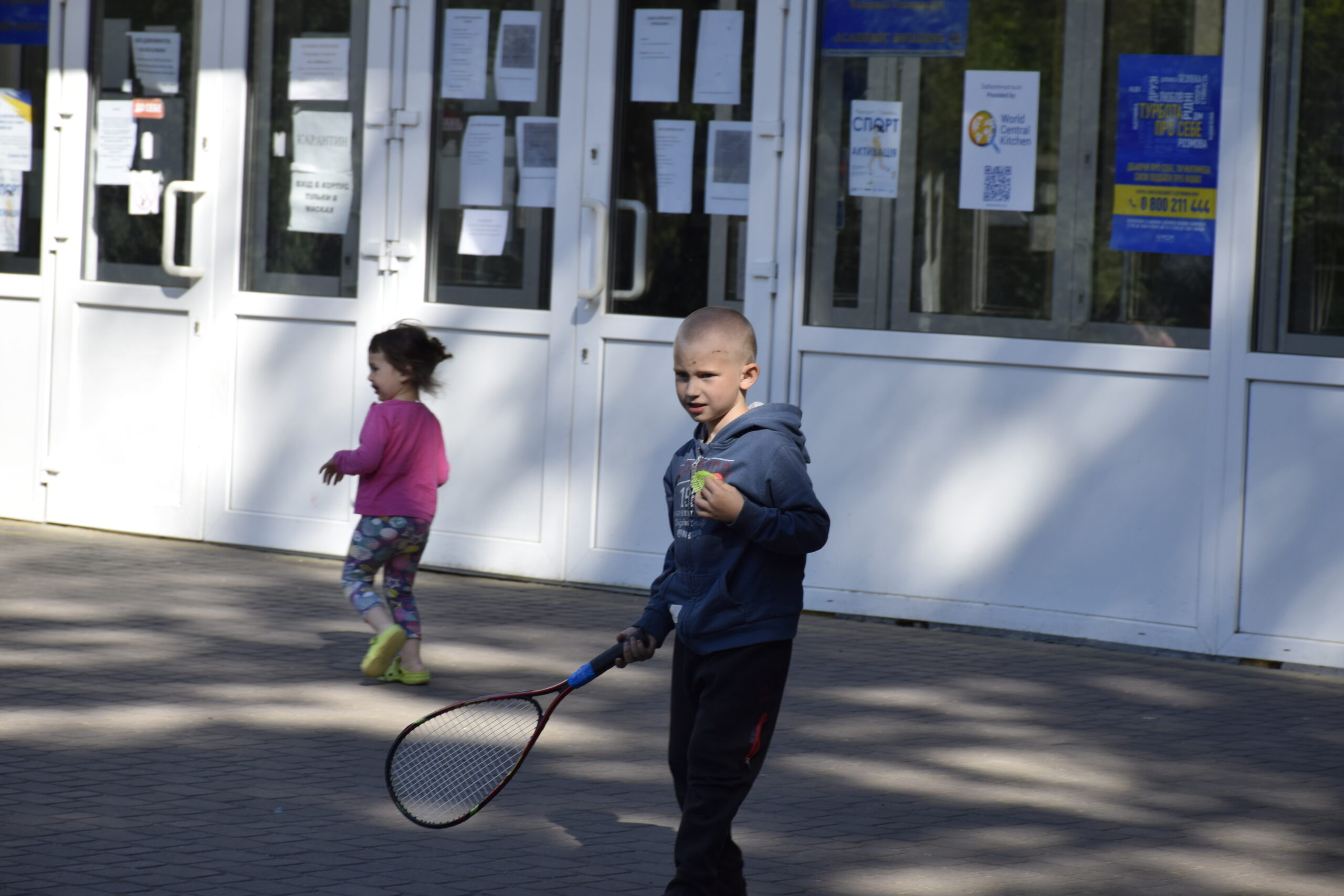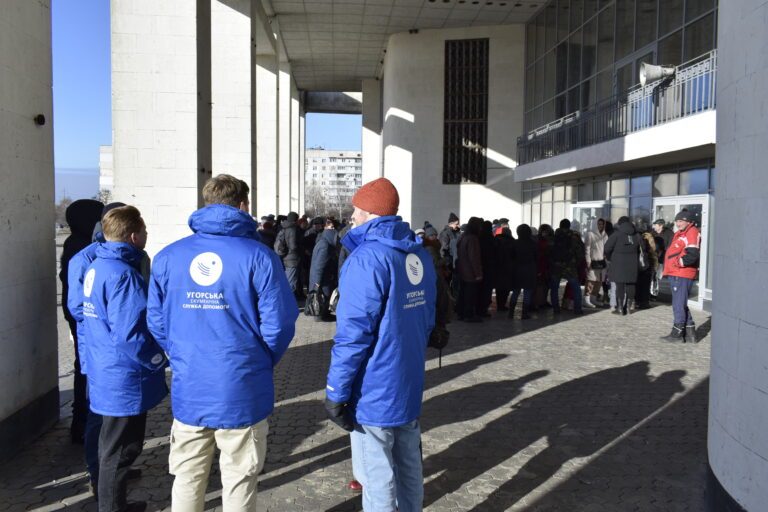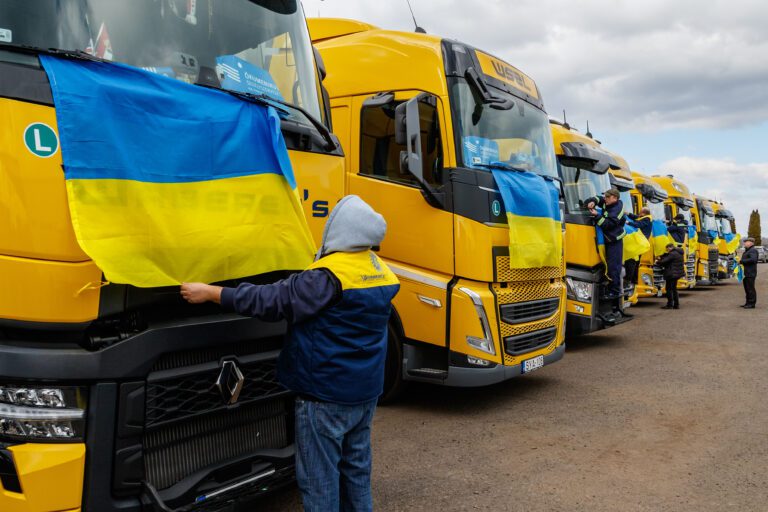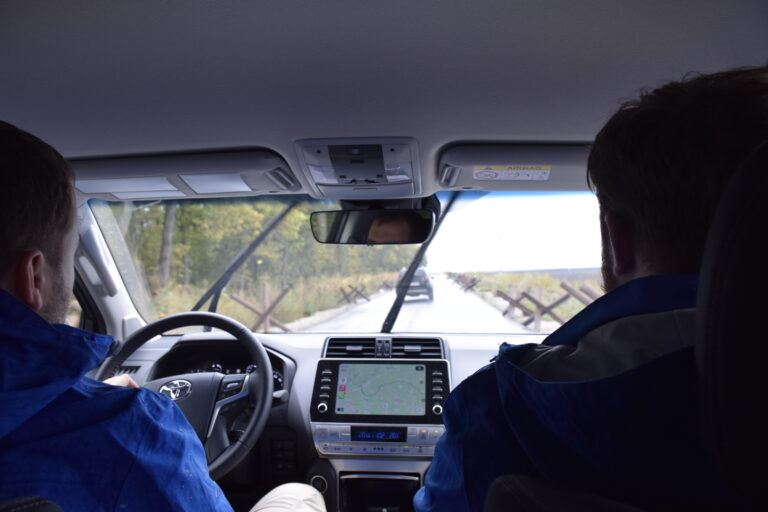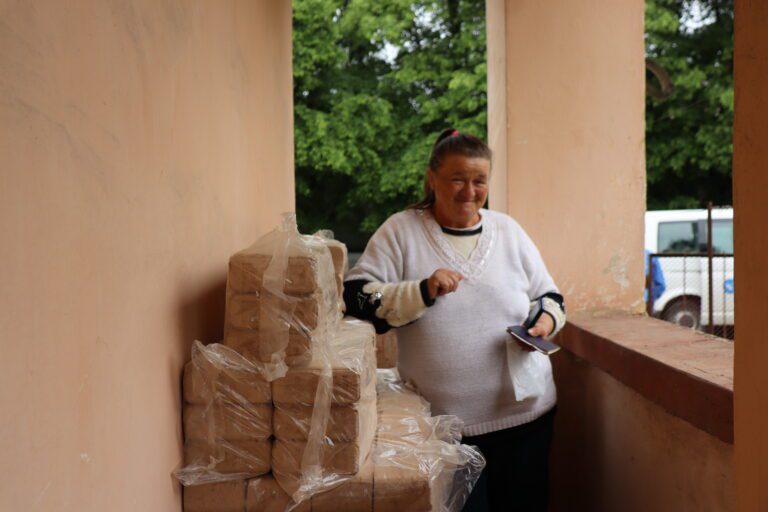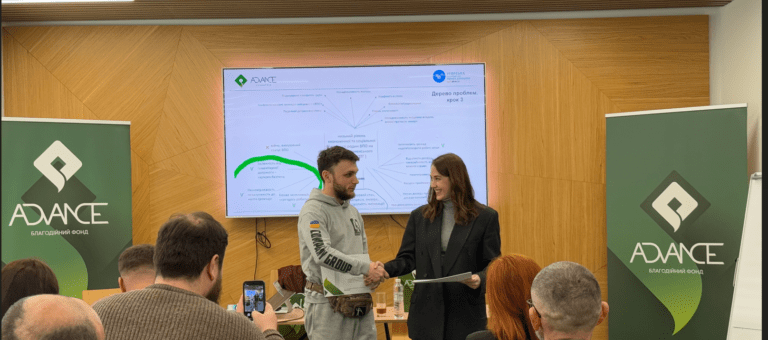After life: searching for solid ground after losing everything
Few people can imagine what it must be like to have to give up a carefully constructed life. Leaving one’s home is a painful experience for most of those who need to flee. This pain can be measured in time, for it is different for a young person just about to start a life and different for the elderly, who have built their homes for decades and raised a family there. It is one thing to know that one’s home is still intact, and another to know everything has perished. The stories of those internally displaced within Ukraine always have one thing in common: they had their livelihoods, homes, and everything but their lives taken from them. While they could only bring small reminders of their past lives with them while fleeing to the big unknown, the psychological weight, while invisible, is a burden to carry for years to come. Now far away from the horrors of war, most of them are still searching for solid ground. A sense of security is only the first step of many the displaced need to take on their difficult journey to establish a new life. The Hungarian Interchurch Aid and its partners are working all over the country to make this journey easier for them, including in the city and the surroundings of Lviv, Western Ukraine, where hundreds of thousands of people have sought refuge in recent months. This is the first episode of our series where our readers can get to know the people living in the community shelters of Lviv.
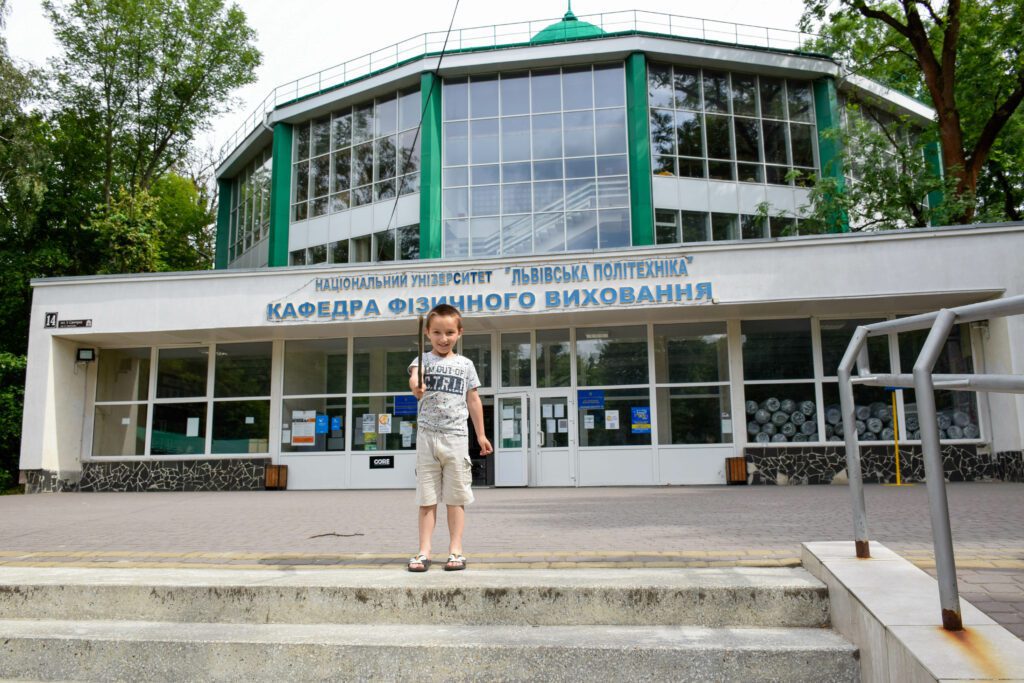

“My flat is still intact, we still have a place to return home to. If only this was over”
‘Look, the ball rolled away. Should we go get it?’ I ask the little girl toddling around seemingly unsupervised. We are standing in front of a sports facility that has been converted into a community shelter, providing temporary housing for at least a hundred people. Her hand is just big enough to grab one of my fingers, and off we go down the small slope to retrieve the ball that decided to go its way.
Her attention was right away seized by the football game played by some boys at least twice her age on the pitch renewed by the Hungarian Interchurch Aid. Then, being the toddler she is, she got to leaving a fingerprint on anything that could be touched. She went on grabbing the goal, the net, the balls on the field, the slag covering the soccer field, the tree branches and leaves. Meanwhile, no adults were looking for the little girl. ’Where are the parents? Are they at work? Who takes care of the children at this time?’ I wondered.
’There are children who, how shall I put it, shape their lives here on their own, without parental supervision. They invent themselves’ said one of the shelter’s volunteer psychologists conducting a drawing lesson with a few children. She subtly hinted that not all adults with children qualify as “model parents”, so the work and presence of volunteers are of great importance for the children’s healthy development.
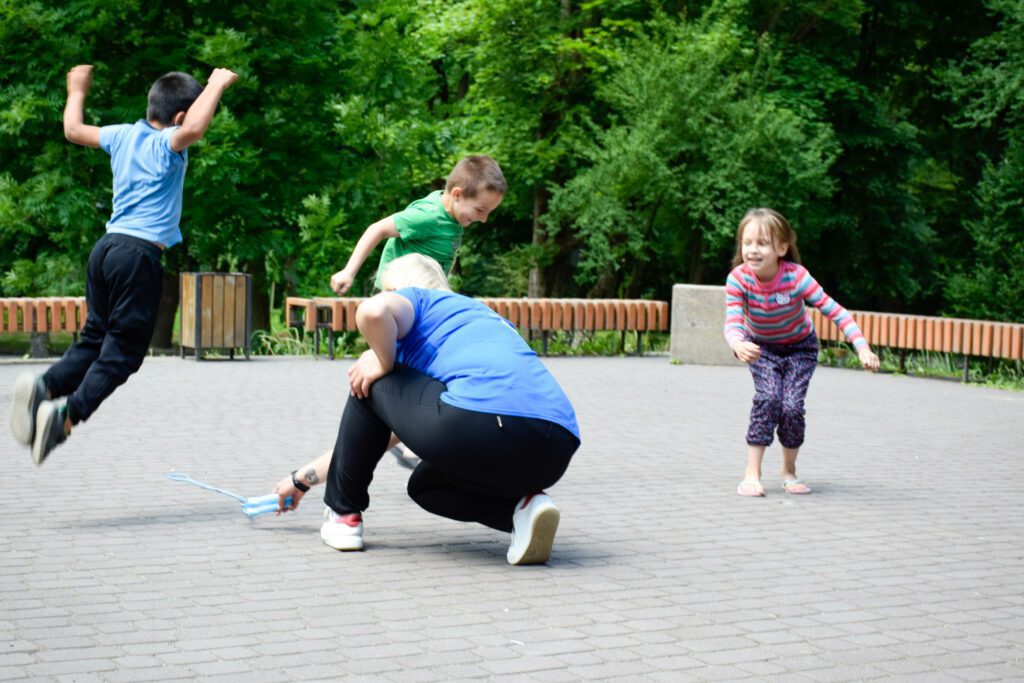

After quite a while I managed to persuade the little girl to go back in front of the shelter, to see if we could find her mother.Walking back, a picture familiar to many met our gaze. Children and young people playing badminton and basketball fill the square with life, while adults sit on the benches surrounding the small square, watching the youth and talking to each other. Although the internally displaced persons came from different settlements, and living together in the accommodation set up in the sports facility was by no means problem-free, a community emerged from the seemingly ragtag group of people, giving the shelter a real residential atmosphere.The grandfather with a tired gaze in his eyes twirling his mustache, the grandmother going through donated clothing to find the most suitable ones for her grandchildren, young adults blasting rave music from a portable speaker, boys grooming girls with too much make-up for the summer weather, mothers playing on their phones out of boredom, care-worn fathers scolding their mischievous children, and men of different age playing chess undisturbed by the commotion in a secluded corner.
Entering the “playground” returning from our exploration, we did not need much time to find Vika’s mother. As soon as she saw her, she ran into the embracing arms of a slim, young, smiling lady. The mother, Svetlana, did not let her two-and-a-half-year-old daughter wander away out of inattention, she always keeps an eye on her. Rather, it is the sense of security that keeps her from constantly trailing behind her children. “I love this park. It is fenced off, there is no busy road around where my child could run out onto, and there are helpers and volunteers everywhere, so I know they are completely safe. Hence, I also have time to relax and tend to myself, so I have no reason to complain,” he says with a sincere smile. Svetlana is the mother of soon-to-be three-year-old Vika and five-year-old Max. They have fled from Bahmut in Donetsk region even before the fighting reached the town.
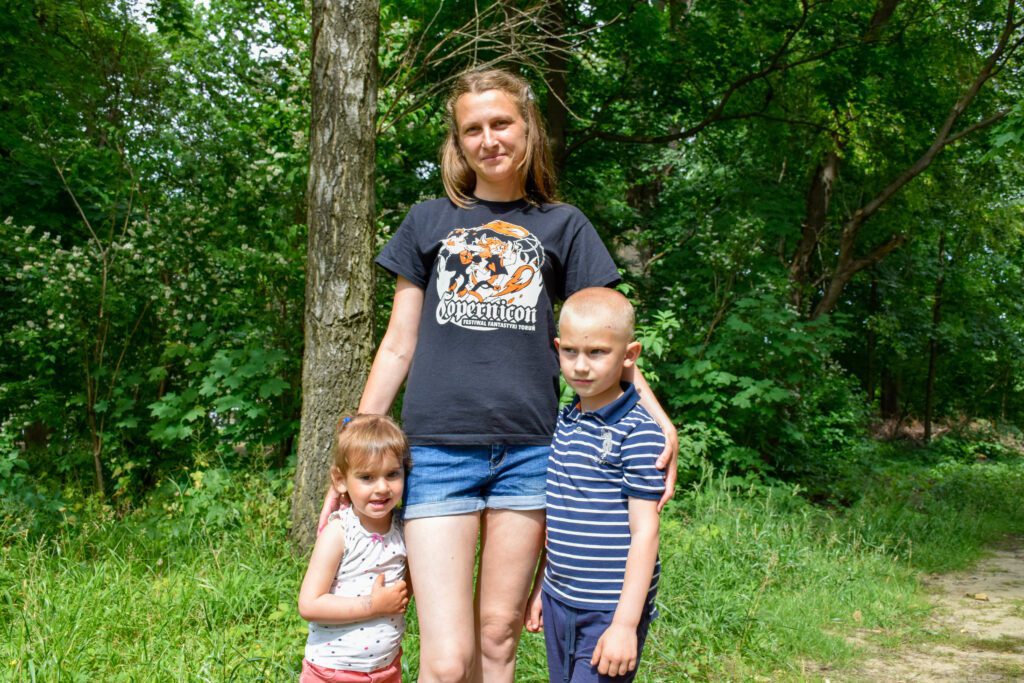

Like most refugees from Donetsk and Luhansk, the war was not a new experience for her either, the events eight years ago are still alive in her unlike in her children. “Fortunately, the little one doesn’t understand any of this. Max perceives that we have traveled far, the environment is different, and although he tends to ask about what he hears, as in that there are bombings, shelling and a war is raging in our homeland, fortunately, he does not fully comprehend what this means,” says the young mother with relief.
Svetlana sees her stay in Lviv as temporary, as her heart draws her home. Her husband has already found a job and works in the city during the day, but the price of subletting has risen so high that she does not even count on settling in Western Ukraine with her family. She is grateful for all the help that makes it easier to get through these difficult times, but at the same time, is confident that the war will end by the end of the summer. Or at least hopes so. “I hope they will repel the invading forces at least far enough so that we can safely return home by autumn. My apartment is still standing, we still have a place to return home to. If only this was over. You know, it’s very nice here, but we’re already used to our own hometown, even if it’s not as nice as Lviv,” she says with palpable homesickness in her voice.
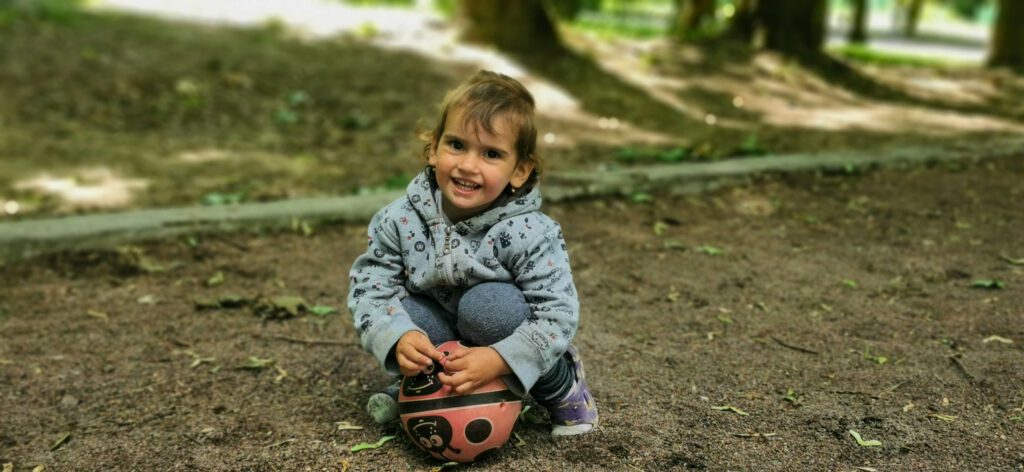

“What happens if the war drags on and your home comes under Russian control?” I ask the sobering question. Svetlana became silent for a moment. “I haven’t really thought about that yet. My sister and my parents are also under occupation in one of the villages first in the county to fall into Russian hands,” she says, then with nostalgia in her voice. She used to talk a lot on the phone with her sister or her mother, chatting for hours about the small things of everyday life. “We rarely speak now, and even then only briefly to make sure that everyone is healthy and safe,” she adds, visibly lost in thought, but with an unwavering smile.
Svetlana is not alone in her homesickness. Although the partner of the Hungarian Interchurch Aid and the volunteers who manage the refugee shelter do their best to make the living conditions of the people forced to flee as homelike as possible, the unseparated “living quarters” created in the large gymnasiums are unsuitable for undisturbed family life on the long run.
